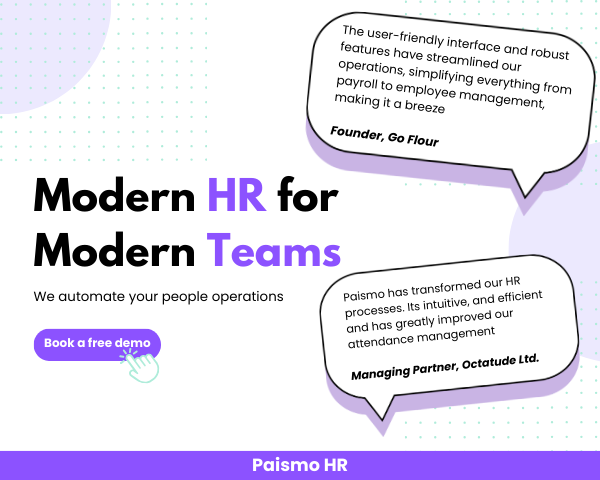Highlights
- Asking really good questions demonstrates your readiness and eagerness to be part of the company.
- If you honestly talk about your strengths and areas where you can improve, it shows the interviewer you’re aware of what you bring to the table and are responsible.
- Working on your priorities shows you can keep track of many tasks and handle the needs of your job.
- A real example of resolving a conflict reflects that your team can solve problems and cooperate.
Nailing the interview isn’t just about answering questions; it’s also about asking the right ones. While your resume, cover letter, and job search game have already set you apart, what truly leaves a lasting impression is how you engage in the conversation. Asking thoughtful questions shows you're serious, prepared, and genuinely interested. Here are the 10 best questions to ask in an interview, share smart answers, and offer tips tailored to your strengths.
What Are the Best Questions to Ask In an Interview?
Asking the right questions in an interview shows that you’re serious, prepared, and genuinely interested in the role. Rather than staying silent, use this moment to learn more about the company and show your strategic thinking.
For example, asking about growth opportunities or team dynamics tells the interviewer you’re thinking long-term. Moreover, questions about company culture can help you decide whether the workplace truly suits your goals and values.
In contrast, skipping this part may leave the impression that you’re not fully engaged. So, take this opportunity to stand out and ask thoughtful questions that spark meaningful dialogue.
Moreover, at Paismo, we believe interviews should be as insightful for employers as they are for candidates. Our all-in-one HRMS platform with job performance review, timesheet tracker, and biometric attendance integration helps HR teams streamline hiring and better understand who’s the right fit. Use our tools to track candidate engagement, evaluate team alignment, and make smarter hiring decisions.
10 Best Questions to Ask In an Interview
Below, we’ve provided 10 best questions and the most effective way to answer them in an interview:
1. Would You Like to Tell Me Something About Who You Are?
Purpose: They will ask you to introduce yourself, talk about your previous experience, and any skills or knowledge that suit the job.
How to Respond: Bring up experiences from your past to support your application. Stick to your job, not your background.
Example: “I began working in sales eight years ago to build a solid list of clients. I currently train new fitness coaches and look for ways to help people improve their health.”
Note: While this may not seem like the best question to ask in an interview, it's your first chance to connect your background to the role confidently.
2. Please Tell Us What Interests You About Our Company
Purpose: Employers hope you have learned enough about the organization to know that you might enjoy making it your career.
How to respond: Examine the company’s website and follow their social media accounts because this can help you understand what they care about.
Example: “The team focuses on new and innovative energy solutions, which struck me. I want to use my abilities in digital infrastructure and stay with a company that values sustainability.”
3. Why Would You Like to Hold This Position?
Purpose: Employers are interested in who will be satisfied and stay in the job; that’s why they ask about your level of interest in the job opening.
How to respond: Study the job description and figure out what has drawn your interest to the job.
Example: "Because of my marketing background, I can promote and support better use of your products. I plan to grow in my knowledge of consumer products.”
4. What Do You Do Best?
Purpose: It’s one of the best questions to ask in an interview because it helps employers match your strengths with their team’s needs.
How to respond: Read the job description carefully and give examples of 2–3 important skills you’ve used in your previous jobs.
Example: "One thing I do well is handle tasks by myself. I was able to handle system bugs myself in my last position and kept my team informed when bigger issues came up.”
5. What Are the Things You Struggle With?
Purpose: Interviewers ask this question to gauge your self-awareness and ability to improve.
How to respond: Bring up an aspect you’re always working to improve and clarify your actions toward it.
Example: "Sometimes, I have the habit of taking on tasks that I shouldn’t. Although I enjoy helping, I now manage my time and teamwork better with some timelines in place.”
6. What Caused You to Look for a New Job?
Purpose: They want to find out if your skills will let you succeed and thrive in their organization.
How to respond: Tell the truth, but do it quickly and positively.
Example: "I decided to leave my old job to look after my family's health. Now that’s over, I look forward to getting back to work helping customers because that is very rewarding for me.”
7. How Do You Decide What Should Be Done First?
Purpose: The question allows hiring managers to spot your abilities to be organized and your work ethic.
How to respond: Discuss the ways you rely on to manage and sort your tasks. If able, show how others have actually used your process in real life.
Example: "I depend on a planner to keep track of my responsibilities and sort them by order of importance. I keep checking it regularly and set alarms when I have to remember something quickly.”
8. Tell Me How You Respond to Challenges or Conflicts Among Members of Your Team
Purpose: Asking this shows the interviewer what your approach to solving problems is and how you would behave as part of their team.
How to respond: Discuss a moment when you managed conflict productively at work. Follow the SAR method by writing about what happened, your response, and how it ended. Try not to criticize a coworker, your supervisor, or the company too much.
Example: "As shift manager, someone from the kitchen was frequently late or didn’t show up. He didn’t respond well to feedback at the beginning. Eventually, we became friends, and he started attending all the time. His work allowed him to become an assistant manager in the company.”
9. Which Leadership Habits and Surroundings Do You Prefer?
Purpose: It is important to employers that you are successful in their work environment.
How to respond: Always be open, direct, and optimistic in what you say. There isn’t a single, correct way. You want to avoid being in an environment that will not support your success!
Example: "I do really well in team environments where sharing ideas and working together on solutions is encouraged, which makes our services better. I hope to find a leader who builds this team atmosphere and supports my progress.”
10. If You Are Qualified for the Role, Why Should We Choose You?
Purpose: At this stage, no one is eliminated, so employers use this question to decide who might be best suited for the job.
How to respond: Think about the special experiences you’ve had that an employer might notice. For example, it could be experience or knowledge in a specific area, similar experience in the work environment, or education in a certain skill area. Also, note the abilities that set you apart in the workplace. These are often the best questions to ask in an interview as a candidate to highlight your unique value.
Example: "I think my work ethic is higher than that of most colleagues I’ve had in the past. Whenever needed, I’ll put in extra time to get things done. I have worked in law firms before, which helps me manage both cases and court timings.”
Summary
Asking the best questions to ask in an interview demonstrates your preparation and genuine interest. Asking intelligent questions gives you a clearer picture of the company and lets your interviewer know how you operate. Asking the best questions to ask in an interview this way can help both you and the employer make sure this is the right job.
FAQ
What Are the Best Questions to Ask In an Interview?
The best questions to ask in an interview focus on growth opportunities, team dynamics, and company culture. These show your interest and help you decide if the role fits your goals. Asking about challenges or success measures also highlights your strategic thinking and engagement.
Become a part of the Paismo community
Paismo is an HR software that can help simplify your HR operations. In today's dynamic economic environment, efficient HR and automated payroll management are no longer a luxury but a necessity. Paismo is a comprehensive solution that transforms traditional HR complexes into streamlined and automated workflows. Paismo and its paired biometric device integration can be used for your business to mark employee attendance and record their timesheets accurately.
Paismo simplifies your tasks with its core HRMS, timesheets, and attendance management, as well as biometric attendance, payroll automation, and leave management system.
Take the first step toward modernizing your HR and payroll processes and explore what Paismo can do for you. Book a demo with our sales team.









